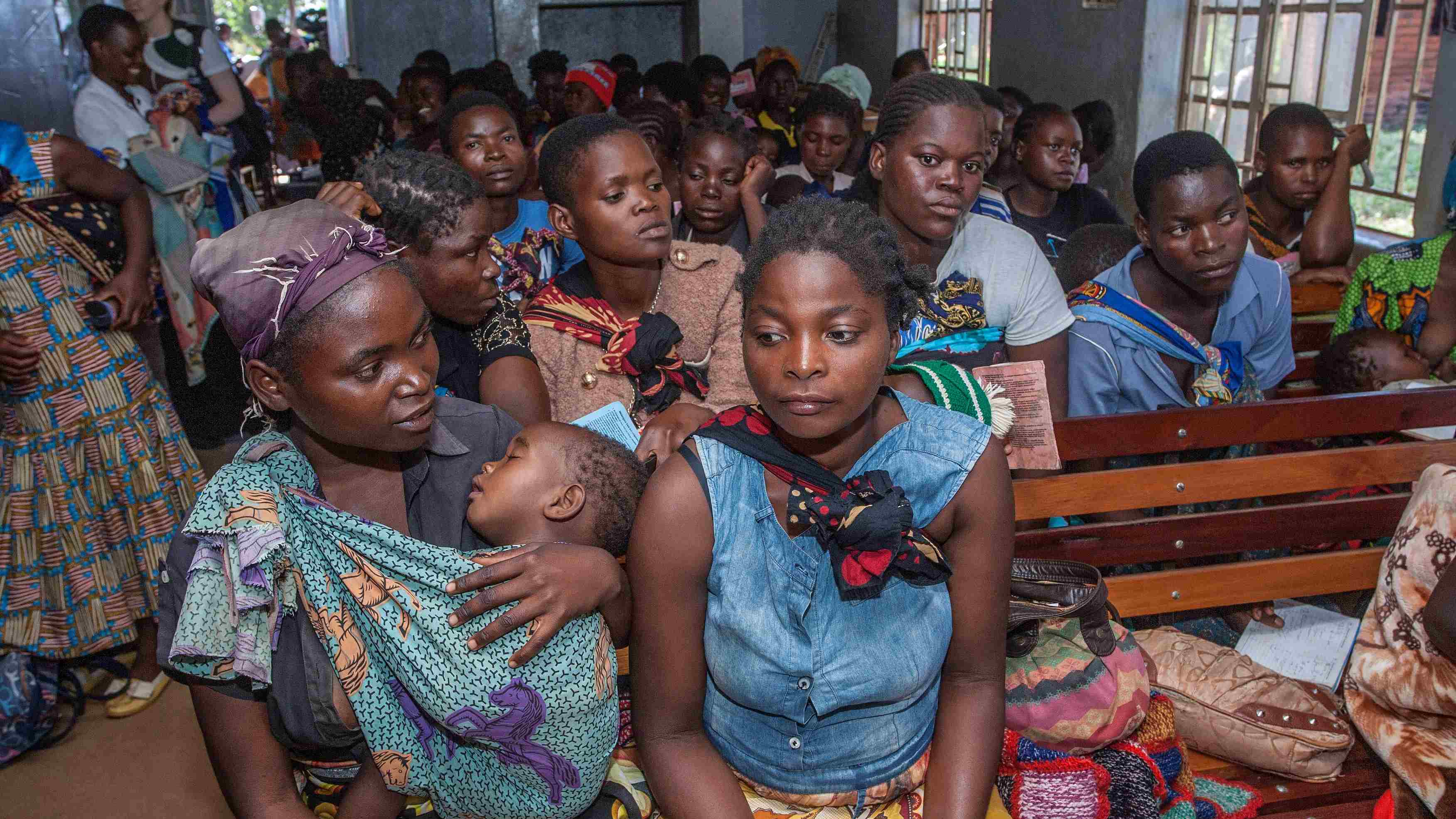
Mothers wait for their sick babies to receive treatment at the beginning of the Malaria vaccine implementation pilot programme at Mitundu Community hospital in Malawi's capital district of Lilongwe, on April 23, 2019. /CFP
Mothers wait for their sick babies to receive treatment at the beginning of the Malaria vaccine implementation pilot programme at Mitundu Community hospital in Malawi's capital district of Lilongwe, on April 23, 2019. /CFP
Due to disruptions caused by the coronavirus pandemic, malaria deaths will far exceed those killed by COVID-19 in sub-Saharan Africa, the World Health Organization (WHO) warned on Monday.
More than 409,000 people globally - most of them children in the impoverished parts of Africa - were killed by malaria last year, the WHO said in its latest global malaria report, and COVID-19 will almost certainly make that toll higher in 2020.
"Our estimates are that depending on the level of service disruption (due to COVID-19) ... there could be an excess of malaria deaths of somewhere between 20,000 and 100,000 in sub-Saharan Africa, most of them in young children," Pedro Alsonso, director of the WHO's malaria programme, told reporters.
"It's very likely that excess malaria mortality is larger than the direct COVID mortality."
Meanwhile, drugs like Hydroxychloroquine, which should have been used to treat malaria patients, were once sold out in many countries. Both the U.S. President Donald Trump and Brazil President Bolsonaro touted the drug as a preventative measure for the coronavirus.
But later studies have shown that it's not an effective treatment for the COVID-19. The WHO has halted the drugs' clinical trials as it doesn't reduce death rates among COVID-19 patients.
The U.S. Food and Drug Administration has also revoked the emergency authorization for malaria drugs championed by the President amid growing evidence they don't work and could cause serious side effects.
01:39

Malaria worldwide
The WHO report found there were 229 million malaria cases globally in 2019. It said that despite the unprecedented challenges of the COVID-19 pandemic, many countries around the world had fought hard and held the line against the disease.
But "long-term success in reaching a malaria-free world within a generation is far from assured," it said. Some of the African countries worst affected by malaria have struggled to make significant progress since 2016.
Due to the ongoing transmission of malaria via mosquitoes in many parts of the world, half the global population is at risk of contracting the disease - and it still kills a child every two minutes. Despite this, the focus of worldwide funding and attention has been diverted, making preventable child deaths more likely.
Peter Sands, executive director of the Global Fund to fight AIDS, tuberculosis and malaria, said the WHO report's findings were "extremely timely."
"The global health world, the media, and politics, are all transfixed by COVID,...and yet we pay very little attention to a disease that is still killing over 400,000 people every year, mainly children," he told reporters at the briefing.
"And to remind you, this is a disease we do know how to get rid of - so it is a choice that we don't."
Read more:
New cure for malaria
(With input from Reuters)

